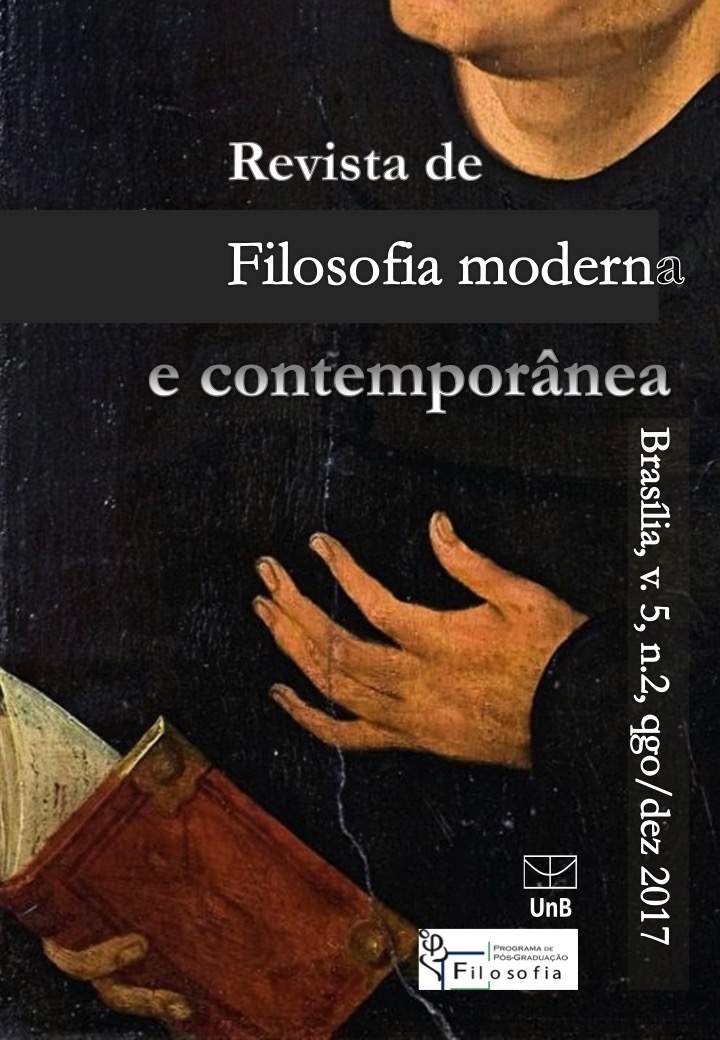Nietzsche and Luther: conscience, guilt and justification
DOI:
https://doi.org/10.26512/rfmc.v5i2.12594Abstract
The conception of I am aware is one of the big critics that Nietzsche shows to Modernity. The I am aware, by the notions of truth, moral, and ending subjects the plurality subjective of individual. As the conscience Bewusstsein in its bilogical sense, the product more undone of fisical development, as the conscience Gewissenin its moral sense, the obstacle before the manifestation of instincts, Nietzsche consider as expresssion of décadence of Modernity. The Protestant Reform, proposed by Luther, to resurrect the Christianity founded by faith, grace end scripture, oppose to Rebirth. This last one would have been the chance that the culture would have of rise to resurrect the old greek ideas. Nietzsche understand that Luther, to focus in notion of an I am aware of guilt and that only by the faith is apt of subjetct to justifiable grace of crucified God, gives the victory palm to ascetic priest. To what extent have the accusations of Nietzsche make sense that, by the I am aware Luther divinizes the dead, the pain and suffering to the detriment of subjugation of life?
Downloads
Published
Issue
Section
License
Copyright for articles published in this journal is retained by the authors, with first publication rights granted to the journal. By virtue of their appearance in this open access journal, articles are free to use, with proper attribution, in educational and other non-commercial settings.


